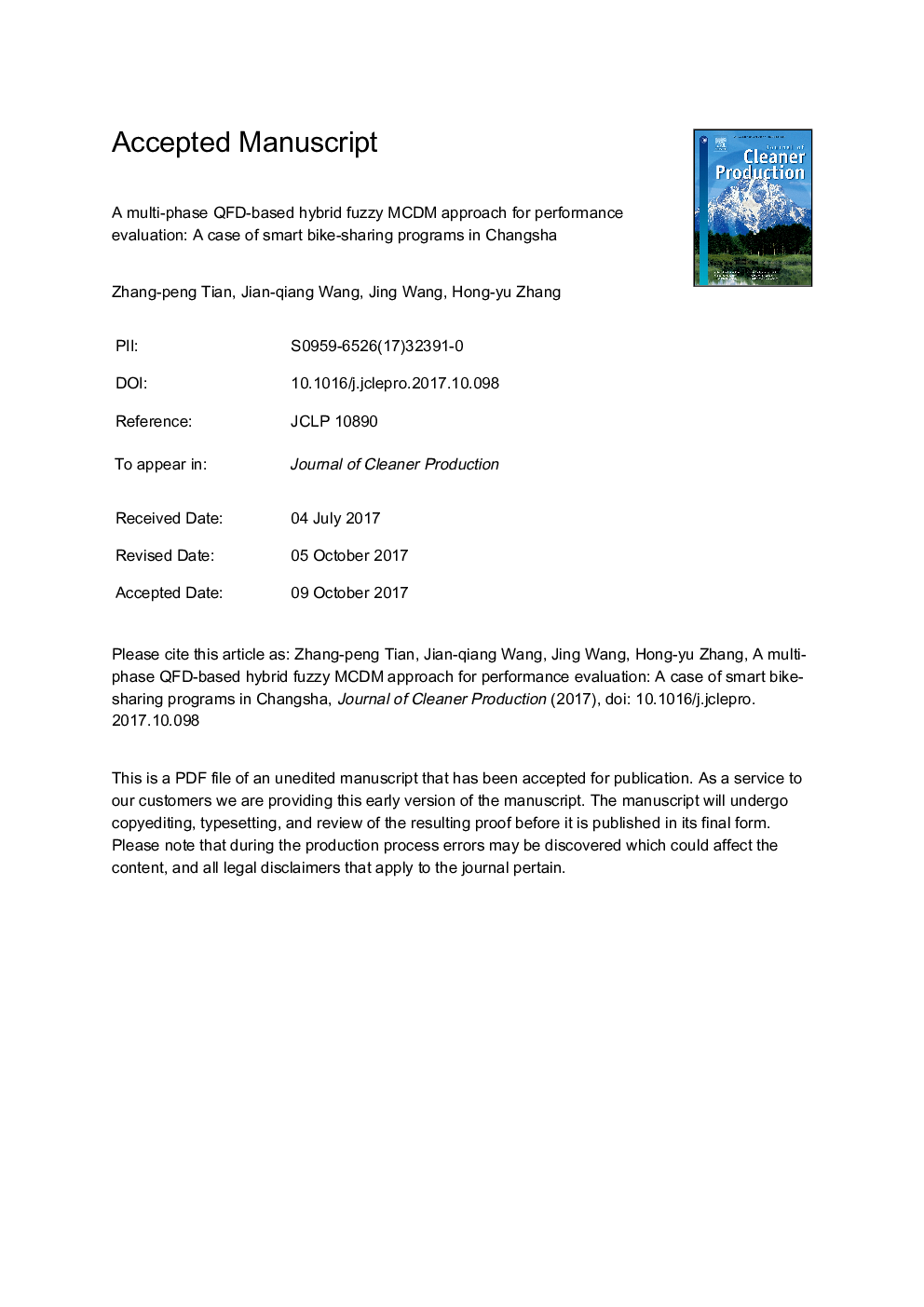| Article ID | Journal | Published Year | Pages | File Type |
|---|---|---|---|---|
| 8100388 | Journal of Cleaner Production | 2018 | 35 Pages |
Abstract
The smart bike-sharing program (BSP), which is a novel bike-sharing mode of traditional BSP, has become popular in many cities in China. However, most BSP studies focus only on the socio-economic characteristics of the users, bike-sharing patterns, and impacts that influence bike-sharing demand. This study increases the knowledge on BSPs by presenting a hybrid fuzzy multi-criteria decision-making approach that is based on multi-phase quality function deployment. This approach covers the performance evaluation of smart BSPs allowing for customer voices under uncertain conditions. This method combines the fuzzy best-worst method (BWM), fuzzy maximizing deviation method (MDM), and fuzzy multi-objective optimization by ratio analysis plus the full multiplicative form (MULTIMOORA). It uses fuzzy BWM to determine priorities of customer requirements and company strategies and to obtain subjective importance coefficients of criteria. Fuzzy MDM is used to derive objective importance coefficients of criteria and fuzzy MULTIMOORA is used to rank alternatives in terms of each criterion. An empirical case in Changsha, which is one of the pilot areas for comprehensively supporting the reform for an environment-friendly and resource-conserving society ("two-oriented society") in China, is provided to illustrate the application of the proposed framework. Results can help enterprises and organizations improve their performance and provide high-quality products and services for customers.
Related Topics
Physical Sciences and Engineering
Energy
Renewable Energy, Sustainability and the Environment
Authors
Zhang-peng Tian, Jian-qiang Wang, Jing Wang, Hong-yu Zhang,
